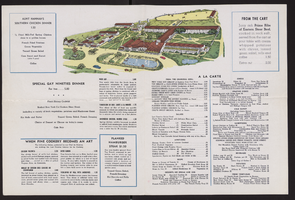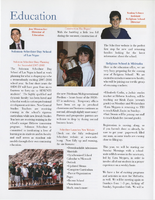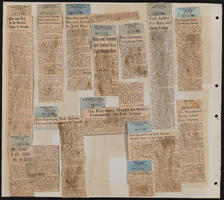Search the Special Collections and Archives Portal
Search Results

Meeting minutes for Consolidated Student Senate, University of Nevada, Las Vegas, February 19, 1974
Date
Archival Collection
Description
Text
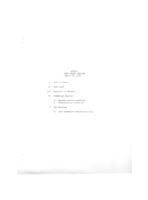
Meeting minutes for Consolidated Student Senate, University of Nevada, Las Vegas, March 23, 1976
Date
Archival Collection
Description
Text
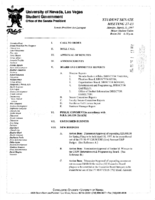
Meeting minutes for Consolidated Student Senate University of Nevada, Las Vegas, March 31, 1997
Date
Archival Collection
Description
Text
UNLV University Libraries Collection on Nevada Mining
Identifier
Abstract
The Nevada Mining Collection is comprised of records that document mining and mines in Nevada from 1842 to 1966. The majority of the collection includes records of various mines and mining companies located in the Esmeralda, Lincoln, Clark, White Pine, and Nye counties, dating from 1900 to 1928. The collection includes financial, administrative, and business related records; photographs of miners, mining camps, and towns; correspondence; maps; newspaper clippings, pamphlets, newsletters, and booklets.
Archival Collection

Laurents Bañuelos-Benitez oral history interview: transcript
Date
Archival Collection
Description
Oral history interview with Laurents Bañuelos-Benitez conducted by Rodrigo Vazquez and Barbara Tabach on June 16, 2021 for the Latinx Voices of Southern Nevada Oral History Project. Laurents is a Las Vegas native, graduate of Clark High School, and son of Mexican and Salvadoran immigrants. He is currently an English teacher at Rancho High School and was a former student worker on the Latinx Voices project.
Text



